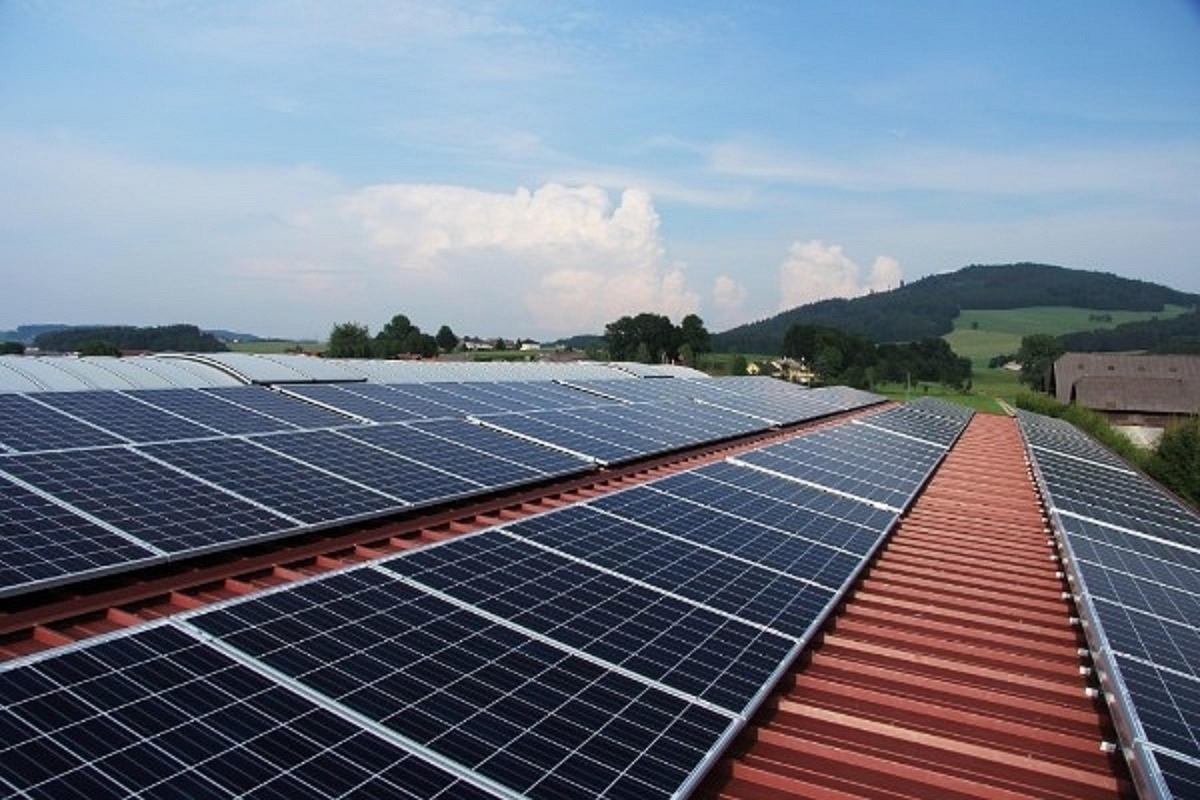News Brief
International Solar Alliance Initiates Global Solar Project 'Green Grids Initiative', India And UK To Launch It At COP26
- The United Nations climate summit—COP26—at Glasgow started on 31 October and is scheduled to run till 13 November.
- During this summit, India and the UK will launch "Green Grids Initiative" which intends to build a solar grid that will connect countries all over the world.

A solar power plant.
At the COP26 climate summit, India and the United Kingdom is expected to announce an initiative to build a solar grid that will connect countries all over the world. The project is known as the "Green Grids Initiative".
The International Solar Alliance, which was launched by India and France at the 2015 Paris climate conference to promote solar energy, is leading the project. In May of this year, the United Kingdom and India decided to collaborate on the initiative.
This project is believed to help those countries where the power demand is booming and a stable alternative of fossil fuels that causes the emission of greenhouse gases is required.
According to Ajay Mathur, director-general of the International Solar Alliance, the new initiative is founded on the premise that the sun is always shining in some region of the world and it aspires to construct a global grid that will carry the sun's electricity from one place to another, reported Associated Press.
For example, he said: “When it is dark in east Asia, it’s still light in India... If there was a cable between India and East Asia, that solar electricity could be provided to East Asia.”
Although the concept of a grid that spans regions isn't new, this is the first attempt to build a worldwide network.
However, some experts believe that this project is India's response to China's massive Belt and Road infrastructure effort.
According to Mathur, solar power will become as inexpensive as fossil-fuel electricity in the next three years, making it easier to establish additional solar power plants and storage facilities. Even so, reaching complex accords will necessitate the cooperation of countries with varying objectives.
He also said that the initiative will begin with a "coalition of the willing," such as two countries that would profit from the export of solar energy. These governments must next decide how they want the interconnectivity to operate and what regulations will govern it.
“The number of willing countries will keep on increasing over time, as costs lower and certainties become higher,” said Mathur.
Investors must be assured that their investment is safe and that they will receive a favourable return, as well as that the cost of the electricity generated will be cheap, according to Mathur.
He noted that the International Solar Alliance wanted to form a $10 billion fund for the project with the help of a new group called the Global Energy Alliance, which includes philanthropic groups and multilateral organisations such as the World Bank.
“So we create the projects, we take it to them and they help...make those projects safe enough to draw in investments from international organisations,” he added.
However, now the question is—whether the execution of the plan will be easy? A possible stumbling block is if the passage between two countries is impassable, such as if the countries are unstable. In other circumstances, a longer cable or one that passes under the sea is required. Any of these reasons could result in a significant rise in prices.
Even with a very ambitious timeframe, Mathur estimates that the first projects connecting multiple regional grids will take a year to complete since governments must first be convinced of the concept before cooperating to establish the best approach to develop the interconnection.
However, this initiative is one of the key topics at the United Nations climate summit—COP26—at Glasgow that started on 31 October and is scheduled to run till 13 November. It gathers representatives from nearly 200 countries to discuss the best ways to prevent global warming.
The coronavirus pandemic forced the postponement of the twenty-sixth conference by a year. However, the Glasgow event has over 25,000 delegates registered and it is being chaired by British official Alok Sharma.
Introducing ElectionsHQ + 50 Ground Reports Project
The 2024 elections might seem easy to guess, but there are some important questions that shouldn't be missed.
Do freebies still sway voters? Do people prioritise infrastructure when voting? How will Punjab vote?
The answers to these questions provide great insights into where we, as a country, are headed in the years to come.
Swarajya is starting a project with an aim to do 50 solid ground stories and a smart commentary service on WhatsApp, a one-of-a-kind. We'd love your support during this election season.
Click below to contribute.
Latest